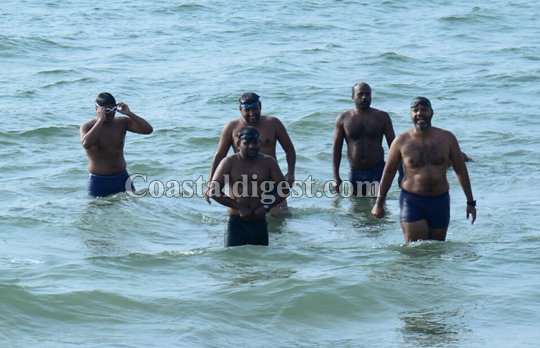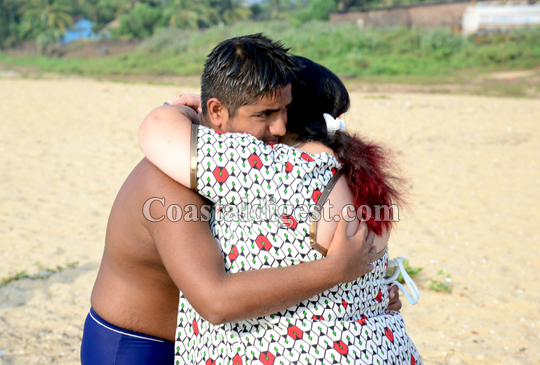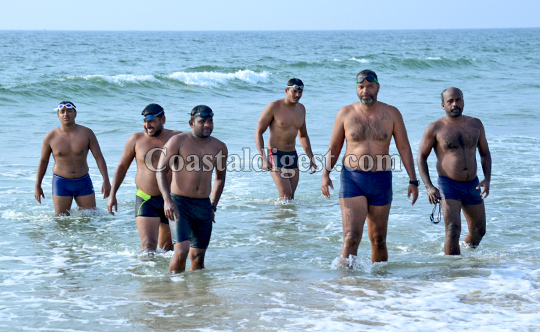Mangalore, Dec 8:The Swim of the Century' supported by IDBI Bank has set the Guinness World Record for the longest open-water relay swim by successfully completing the 1000 km expedition in the Arabian Sea from Gateway Of India, Mumbai to Tannirbhavi Beach, Mangalore via Goa.

Sea Hawks, led by Wing Commander Paramvir Singh, in alliance with IDBI Bank, embarked on the expedition on November 26, 2016 as a tribute to the martyrs and victims of the 26/11 Mumbai terror attacks.
Sea Hawks have broken two world records-the longest 6 person open water swim which was held by American's Night Trains for 505kms and the longest open-water relay swim by 200 swimmers covering 684.75km in 2009. Sea Hawks had also broken their previous year's record of 433.11 km by crossing 548 km mark at Panjim, Goa.
Speaking on the occasion, Shri K.P. Nair, DMD, IDBI Bank, said, “We are proud to be a part of thisSwim of the Century' and whole heartedly congratulate the Team Sea Hawks for their achievement.
This New World Record is a tribute to all those martyrs, who lost their lives guarding ours, and to those Heroes who showed bravery in the face of danger. IDBI Bank is a young bank and has always promoted sports and encouraged individual and group achievements that have done our country proud.”















Comments
Great achievement.
Hats off to sea hawk team.
Add new comment